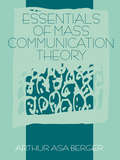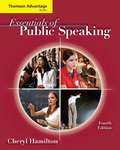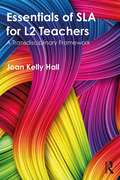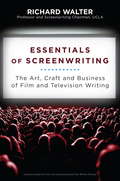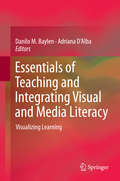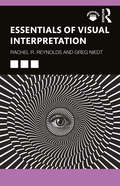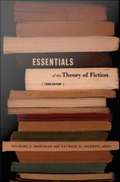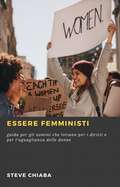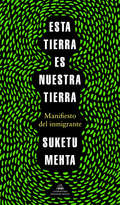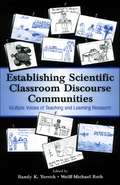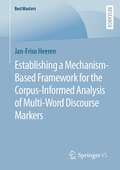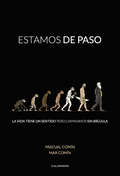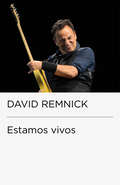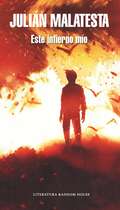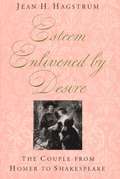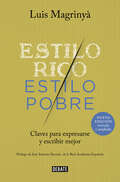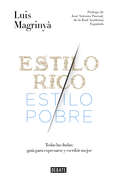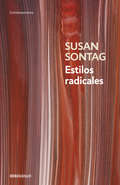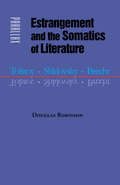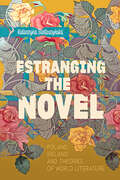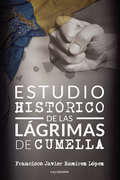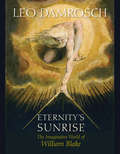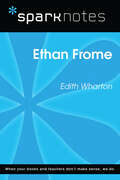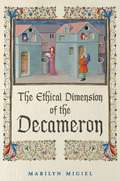- Table View
- List View
Essentials of Mass Communication Theory
by Dr Berger Arthur AThis comprehensive resource on mass communication theory is structured around the key conceptual areas of text, audience, media, production and society. Using illustrations from popular genres - particularly film and television - Arthur Asa Berger combines his broad knowledge of the mass communications field with his unique ability to translate difficult theories and models into comprehensible terms and accessible language. He concludes with suggestions for further work and discussion plus an up-to-date bibliography, making this an excellent introduction for students of communication.
Essentials of Public Speaking (4th edition)
by Cheryl HamiltonThis textbook outlines the process of preparing a speech, and offers advice on analyzing the audience, defining the topic, finding supporting materials, organizing the main points, preparing visual aids, and rehearsing the speech. The third edition adds discussions of communication theories and models.
Essentials of SLA for L2 Teachers: A Transdisciplinary Framework
by Joan Kelly HallEssentials of SLA for L2 Teachers: A Transdisciplinary Framework presents an accessible and comprehensive account of current understandings of second language acquisition (SLA) geared towards those studying to become L2 teachers. Grounded in the pragmatic and problem-oriented transdisciplinary framework of SLA, this textbook draws connections between SLA research and practices for L2 teaching. It aims to build L2 teacher expertise by strengthening teachers’ understandings of the many facets of L2 learning and their skills for designing transformative learning environments in their teaching contexts. The author includes pedagogical implications and inquiry-based activities in each chapter that engage readers in further explorations of the topics covered in the chapter. Short and straightforward, Essentials of SLA for L2 Teachers is the ideal main resource for SLA courses taught at undergraduate and graduate-level teaching programs.
Essentials of Screenwriting
by Richard WalterHollywood's premier teacher of screenwriting shares the secrets of writing and selling successful screenplays Anyone fortunate enough to win a seat in Professor Richard Walter's legendary class at UCLA film school can be confident their career has just taken a quantum leap forward. His students have written more than ten projects for Steven Spielberg alone, plus hundreds of other Hollywood blockbusters and prestigious indie productions, including two recent Oscar winners for best original screenplay-Milk (2008) and Sideways (2006). In this updated edition, Walter integrates his highly coveted lessons and principles from Screenwriting with material from his companion text, The Whole Picture, and includes new advice on how to turn a raw idea into a great movie or TV script-and sell it. There is never a shortage of aspiring screenwriters, and this book is their bible.
Essentials of Teaching and Integrating Visual and Media Literacy
by Danilo M. Baylen Adriana D'AlbaThis book focuses on how to effectively integrate the teaching and learning of visual and media literacies in K-12 and higher education. Not only does it address and review the elements and principles of visual design but also identifies, discusses and describes the value of media in learning diverse and challenging content across disciplines. Finally, this book provides a balanced treatment of how visual and media literacies support deep content learning, student engagement, critical thinking, creativity, problem solving, and production.
Essentials of Visual Interpretation
by Greg Niedt Rachel R ReynoldsEssentials of Visual Interpretation explains how to talk and write critically about visual media and to examine how evolving visual environments, media, and technologies affect human selfunderstanding and culture formation.Lively and accessibly written chapters provide a solid foundation in the tools and ideas of visual meaning, familiarizing readers with a growing, cross-cultural subfield, and preparing them to pursue thoughtful work in a variety of related disciplines. The authors include rich examples and illustrations—ranging from cave paintings to memes, from optical science to visual analytics, from ancient pictographs to smart phones—that engage students with the fascinating complexity of visual interpretation. Each chapter introduces students to key terms and concepts relevant to visual analysis, with ideas for short individual or group exercises to enhance understanding.The book is ideal as a primer in visual analysis and visual communication for students in courses within communication studies, cultural studies, digital humanities, semiotics, media studies, and visual anthropology.Online support materials include multimedia activities for students and links to additional resources for students and instructors.
Essentials of the Theory of Fiction
by Michael J. Hoffman Patrick D. MurphyWhat accounts for the power of stories to both entertain and illuminate? This question has long compelled the attention of storytellers and students of literature alike, and over the past several decades it has opened up broader dialogues about the nature of culture and interpretation. This third edition of the bestselling Essentials of the Theory of Fiction provides a comprehensive view of the theory of fiction from the nineteenth century through modernism and postmodernism to the present. It offers a sample of major theories of fictional technique while emphasizing recent developments in literary criticism. The essays cover a variety of topics, including voice, point of view, narration, sequencing, gender, and race. Ten new selections address issues such as oral memory in African American fiction, temporality, queer theory, magical realism, interactive narratives, and the effect of virtual technologies on literature. For students and generalists alike, Essentials of the Theory of Fiction is an invaluable resource for understanding how fiction works. Contributors. M. M. Bakhtin, John Barth, Roland Barthes, Wayne Booth, John Brenkman, Peter Brooks, Catherine Burgass, Seymour Chatman, J. Yellowlees Douglas, Rachel Blau DuPlessis, Wendy B. Faris, Barbara Foley, E. M. Forster, Joseph Frank, Joanne S. Frye, William H. Gass, Henry Louis Gates Jr. , Grard Genette, Ursula K. Heise, Michael J. Hoffman, Linda Hutcheon, Henry James, Susan S. Lanser, Helen Lock, Georg Lukcs, Patrick D. Murphy, Ruth Ronen, Joseph Tabbi, Jon Thiem, Tzvetan Todorov, Virginia Woolf
Essere femministi: guida per gli uomini che lottano per i diritti e per l’uguaglianza delle donne
by Steve ChiabaDescrizione del libro Guida per gli uomini al femminismo moderno. Siete mai stati vittime di violenza, odio, molestie o sofferenze a causa del vostro sesso? Essere femministi o mettere in pratica ideali femministi significa lottare per le cose che contano. Si parla di argomenti quali parità di retribuzione, maternità, diritti riproduttivi, violenza domestica, diritto a essere trattati con rispetto. Se volete sapere di più su come lottare per i propri diritti e come supportare la lotta per i diritti delle donne questa è la guida per voi. Apprendere ad essere femministi; Imparare a far valere i propri diritti; Battersi per l’uguaglianza e la pari retribuzione; Tanto altro ancora. Apprendere ad essere dalla parte giusta della storia dando il proprio contributo laddove è più necessario. Scorrete in cima alla pagina cliccando sulla voce ‘aggiungi al carrello’ per acquistare immediatamente.
Esta tierra es nuestra tierra: Manifiesto del inmigrante
by Suketu MehtaEl aclamado autor de Ciudad total, Suketu Mehta, firma un apasionado ensayo narrativo a favor de la inmigración global. «Un libro brillante, urgente y necesario. Una elocuente defensa de nosotros, los inmigrantes, contra la intolerancia: qué no somos, quiénes somos, por qué nos merecemos ser bienvenidos y no temidos.»Salman Rushdie Mas que nunca antes, gran parte de la población global se ve obligada a abandonar su hogar y emigrar. Suketu Mehta se encuentra entre los millones de personas que se han visto forzadas a vivir en un país en el que no han nacido, y Esta tierra es nuestra tierra es su urgente defensa de la inmigración global. Un manifiesto a favor de la empatía en el que expone que Occidente no está siendo destruido por la llegada de inmigrantes desde áreas empobrecidas, sino por el miedo a la inmigración. Mehta contrasta las hipócritas narrativas de las ideologías populistas con el heroísmo cotidiano de trabajadores que emigran desde Latinoamérica o el Magreb hacia Occidente en busca de una mejora en sus condiciones de vida. Desde la experiencia de su propia familia, que tuvo que dejar India para trasladarse primero a Reino Unido y después a Estados Unidos, Mehta somete el rechazo a la inmigración a un escrutinio implacable y explora los destructivos legados del colonialismo y la desigualdad que asolan a una gran parte de los habitantes del planeta. Pasional, riguroso y nutrido por un amplio abanico de historias personales, Esta tierra es nuestra tierra es una oportuna y necesaria intervención en un debate de absoluta vigencia. Reseñas:«Una ferviente visión panorámica de la inmigración, revela los orígenes de la inmigración en masa con lucidez abrasadora.»The New York Times «Una crítica avasalladora contra la retórica antiinmigración que ha dominado la política global estos últimos años [...]. Mehta desmantela las narrativas de los ideólogos populistas con una defensa vehemente de la inmigración.»Time Magazine «Una crítica implacable a la hipocresía antiinmigratoria [...]. Conmovedor y ameno, es un himno para todos nosotros.»Jumpa Lahiri «Una llamada a la cordura y a la justicia escrita por uno de nuestros mejores autores.»Mohsin Hamid «Una declaración empática a favor de los inmigrantes que desvela las profundas fuerzas que los llevan a dejar sus hogares.»Joseph Stiglitz «Suketu Mehta es uno de los mejores pensadores y escritores sobre inmigración [...]. Es de esa extraña clase de libros que son pragmáticos, sin sentimentalismos, y a la vez tremendamente inspiradores.»Gary Shteyngart
Establishing Scientific Classroom Discourse Communities: Multiple Voices of Teaching and Learning Research
by Wolff-Michael Roth Randy YerrickEstablishing Scientific Classroom Discourse Communities: Multiple Voices of Teaching and Learning Research is designed to encourage discussion of issues surrounding the reform of classroom science discourse among teachers, teacher educators, and researchers. The contributors--some of the top educational researchers, linguists, and science educators in the world--represent a variety of perspectives pertaining to teaching, assessment, research, learning, and reform. As a whole the book explores the variety, complexity, and interconnectivity of issues associated with changing classroom learning communities and transforming science classroom discourse to be more representative of the discourse of scientific communities. The intent is to expand debate among educators regarding what constitutes exemplary scientific speaking, thinking, and acting. This book is unparalleled in discussing current reform issues from sociolinguistic and sociocultural perspectives. The need for a revised perspective on enduring science teaching and learning issues is established and a theoretical framework and methodology for interpreting the critique of classroom and science discourses is presented. To model and scaffold this ongoing debate, each chapter is followed by a "metalogue" in which the chapter authors and volume editors critique the issues traversed in the chapter by opening up the neatly argued issues. These "metalogues" challenge, extend, and deepen the arguments made. Central questions addressed include: *Why is a sociolinguistic interpretation essential in examining science education reform? *What are key similarities and differences between classroom and scientific communities? *How can the utility of common knowledge and existing classroom discourse be balanced toward alternative outcomes? *What curricular issues are associated with transforming classroom talk? *What other perspectives can assist in creating multiple access to science through redefining classroom discourse? Whether this volume improves readers' science teaching, assists their research, or helps them to better prepare tomorrow's science teachers, the goal is to engage them in considering the challenges faced by educators as they navigate the seas of reform and strive to improve science education for all.
Establishing a Mechanism-Based Framework for the Corpus-Informed Analysis of Multi-Word Discourse Markers (BestMasters)
by Jan-Friso HeerenThis book establishes and applies a linguistic framework for the synchronic and diachronic analysis of multi-word discourse markers (MWDMs). The aim of this study is to examine in detail how MWDMs have developed out of their polysemous lexical counterparts. First, this study critically evaluates existing Grammaticalization and Pragmaticalization theories addressing both their strengths and drawbacks. In the following, a revised Pragmaticalization approach is developed. Considering three linguistic dimensions, this approach consists of six mechanisms: Discursivization & Scope Extension (semantic dimension), Syntactic Isolation & Acategorialization (syntactic dimension) and Consistency & Prosodic Accentuation (phonological dimension). Using data from the Oxford Etymological Dictionary and the TV Corpus, the study then applies these mechanisms to the MWDMs by the way, all the same and what is more. Providing a detailed corpus-informed analysis of these units, this book demonstrates the advantages of the suggested framework and consequently offers an innovative contribution to the field of linguistics.
Estamos de paso: La vida tiene un sentido pero caminamos sin brújula
by Mar Comín Pascual ComínLa vida tiene un sentido, pero caminamos sin brújula. Este libro es un mano a mano con mi padre. Él reflexiona sobre la vida y la evolución. Yo, sobre la muerte y la adaptación. Este libro es un cara a cara con el duelo. Sin embargo, no es un libro triste. <P><P>Este libro es el manual que, desde que mi padre murió, me recuerda la mejor de sus lecciones: «Hoy es el aquí y ahora. Vive intensamente. Sin apego al pasado ni miedo al porvenir. Y agradece, cada día, las pequeñas cosas de este fantástico regalo que es la vida». <P><P>La contrapartida de tener a un padre tan grande es lo mucho que se le echa de menos. He conseguido ser una niña hasta los cuarenta. Ahora, Peter Pan crece. De repente. «Ya que nos hallamos de paso temporal por el cosmos, admitamos que somos una chispa del más hermoso y fantástico regalo de la Vida (en mayúsculas). Hasta siempre, porque cada día nos reencontraremos en la alegría centelleante de la Vida y de las estrellas.»Pascual Comín
Estamos vivos (Colección Endebate #Volumen)
by David RemnickEl fascinante perfil de The Boss, Bruce Springsteen, realizado por David Remnick. Una noche de 1957, un niño llamado Bruce Springsteen se quedó embobado viendo a Elvis Presley en la televisión y le confesó a su madre que así quería ser de mayor. Más de medio siglo más tarde The Boss se ha convertido en una de las leyendas más sólidas del rock, llenando estadios en medio mundo y extendiendo la tradición alternativa del rock como una forma del progresismo político, en sus palabras «una forma de denunciar la distancia entre la retórica y la realidad de Estados Unidos». David Remnick, una leyenda del periodismo estadounidense, acompañó a Springsteen en los ensayos y parte de la gira mundial que emprendió en 2012. Estamos vivos es el fascinante retrato de artista maduro, una obra maestra del periodismo narrativo.
Este infierno mío
by Julián MalatestaUna novela poderosa y sorprendente sobre el conflicto armado colombiano. En esta novela El ejército y La Fuerza (la guerrilla) libran combates sangrientos ya por inercia, como signados por un destino inevitable, y prácticamente sin recordar las motivaciones por las cuales empuñan las armas, o sin ya creer en ellas. Les queda, por fortuna, una vida que sí intentan entender y en la que sí creen poder incidir, una vida rica en la que confluyen sus amores, sus miedos, sus alegrías, y en la que el odio y las discordias sólo surgen por razones personales y, en definitiva, más humanas. En esta historia "El Gavilán" comandante de La Fuerza lucha hace años en el monte en nombre de los pobres, es una leyenda viva. Como Odiseo, dejó atrás a su esposa y a su hijo esperándolo. Raquel, como Penélope, le ha sido fiel desde que lo conoció con la esperanza de que algún día volverá. Y Domingo, su hijo, solo lo conoce a través de los relatos que de él le hace Alirio, compañero de armas del comandante y amigo de Raquel.
Esteem Enlivened by Desire: The Couple from Homer to Shakespeare
by Jean H. Hagstrummagisterial book by one of our most distinguished literary historians, Esteem Enlivened by Desire illuminates (and celebrates) the ideal of lasting love from antiquity to the high Renaissance. Love that leads to marriage is a relatively recent "invention," or so critics and historians often say. But in this remarkable survey, Jean H. Hagstrum argues that long-term commitment formed of friendship and passion is one of Western culture's oldest and richest concepts. Hagstrum looks mainly at depictions of love in art and literature, works of the imagination that reflect social reality but also often transcend it to challenge restrictive codes and open up new possibilities for human nature. Among these possibilities, the association of esteem with sexual desire is one of the most invigorating that artists and thinkers have ever addressed. Tracing this motif through many different kinds of expression—from the Homeric epics, the Oresteia, Augustine's Confessions to the stories of Ovid, the Decameron, the plays and sonnets of Shakespeare—Hagstrum also illuminates a number of related themes, including other forms of relationship, from friendship to lust; marriage for political ends; liaisons with the same sex; and the presence of passion in religious commitment. The culmination of Hagstrum's long career, Esteem Enlivened by Desire offers generous insight into the amorous heritage of the West—and honors one of its most important, enduring, and hard-won achievements.
Estilo rico, estilo pobre
by Luis MagrinyàTodas las claves para expresarse y escribir mejor Un libro práctico, riguroso y divertida sobre los buenos y malos usos del lenguaje Nueva edición revisada y ampliada ¿Son los sinónimos la panacea del buen estilo? Tratando de lograr cierta intensidad ¿no caemos en ocasiones en la redundancia? ¿El miedo a las palabras «vulgares» nos condena a una cómica pretensión de estilo «elevado»? Es indudable que a la hora de expresarnos formalmente todos procuramos hacerlo bien, y que tenemos en la cabeza una serie de consignas sobre qué significa eso. Estilo rico, estilo pobre —publicado originalmente en 2015 y que ahora se presenta en una edición revisada y ampliada— plantea hasta qué punto están bien encaminadas tales consignas. No se trata del típico manual de estilo que indica si infanta se escribe con mayúscula o minúscula, si el gentilicio de París es parisino o parisién, o si guion va con o sin tilde, sino que propone una serie de observaciones útiles, divertidas y razonadas para invitarnos a pensar un poco en la lengua. Muchas de ellas están basadas en numerosos ejemplos de textos literarios y periodísticos, pero otras están tomadas de la vida cotidiana, es decir, no son obra de profesionales. El autor, Luis Magrinyà, actúa en este libro como un observador de la lengua: recomienda evitar usos cansinos, perezosos e irreflexivos, y señala también las tentaciones que acechan en el camino de la prosa «elegante y bonita». Su propósito principal es tranquilizador: ofrecer indicios de que a menudo el estilo no tiene por qué estar donde nos han dicho, y animarnos a que nos liberemos de aquellos prejuicios, muchas veces inconscientes, que limitan nuestra disposición a la hora de expresarnos y escribir bien. La crítica ha dicho:«Ofrece una lección de estilo y de léxico para quienes tienen la escritura como oficio o vocación».Álex Grijelmo, El País «Un “dardo en la palabra” underground».Europa Press «Inteligente y travieso, lleno de observaciones perspicaces y de soluciones para problemas comunes […], Estilo rico, estilo pobre es valioso para escritores, periodistas, traductores, editores y también para cualquiera que se preocupe por la precisión, la claridad y la elegancia del lenguaje».Daniel Gascón, Revista de Libros «Un texto que nos ayuda a no caer en la pedantería».Paula Corroto, elDiario.es «Su texto es más bien lúdico y prescinde de la severidad de los doctrinos y de los togados, a la que es muy propenso el juicio sobre el idioma en estos pagos. No hay nada de eso en el libro, muy entretenido y rebosante de ejemplos, por otra parte».Alejandro Gándara, blog El Escorpión
Estilo rico, estilo pobre: Guía práctica para expresarse y escribir mejor
by Luis MagrinyàUna guía práctica, rigurosa y divertida sobre los buenos y malos usos del lenguajeEs indudable que a la hora de expresarnos formalmente todos procuramos hacerlo bien, y que tenemos en la cabeza una serie de consignas sobre lo que esto significa. Lo que plantea este libro es hasta qué punto están bien encaminadas tales consignas.No se trata del típico manual de estilo que dice si infanta se escribe con mayúscula o minúscula, si el gentilicio de París es parisino o parisién, o si guión va con tilde o sin tilde. Más bien se busca averiguar aquí si es cierto que los sinónimos son la panacea del buen estilo. O si, en busca de la intensidad, a veces no caemos en la más pura redundancia. O si el temor a las palabras "vulgares" no nos condena a veces a una cómica pretensión de estilo "elevado" y tantas otras cosas más.Luis Magrinyà propone una serie de observaciones útiles, divertidas y razonadas, basadas en multitud de ejemplos de textos de grandes (y pequeños) escritores, para invitar a pensar un poco en la lengua. Y, así como recomienda evitar usos cansinos, perezosos e irreflexivos, señala también el sinfín de tentaciones que acechan en el camino de la prosa "fina y bonita". Su propósito principal es tranquilizador: ofrecer indicios de que a menudo el estilo no tiene por qué estar donde nos han dicho, y animar a liberarnos de aquellos prejuicios, tantas veces inconscientes, que limitan nuestra disposición a la hora de expresarnos y escribir bien.
Estilos radicales (Alfaguara/bolsillo Ser.)
by Susan SontagLos ocho ensayos incluidos en este libro son una portentosa muestra de la pluralidad filosófica de Susan Sontag. Estilos radicales (1969), la segunda colección de ensayos de Susan Sontag, extiende las investigaciones apuntadas en Contra la interpretación a nuevas consideraciones sobre el cine Bergman y Godard, la literatura Cioran, la política la guerra de Vietnam y un magnífico estudio sobre la pornografía, «La imaginación pornográfica», por mencionar algunos de los ocho ensayos certeros que contiene este volumen. Reseña:«Susan Sontag es uno de los críticos más valiosos e interesantes que tenemos, una escritora de la que es posible aprender continuamente.»Richard Gilman, The New Republic
Estrangement and the Somatics of Literature: Tolstoy, Shklovsky, Brecht (Parallax: Re-visions of Culture and Society)
by Douglas RobinsonDrawing together the estrangement theories of Viktor Shklovsky and Bertolt Brecht with Leo Tolstoy's theory of infection, Douglas Robinson studies the ways in which shared evaluative affect regulates both literary familiarity—convention and tradition—and modern strategies of alienation, depersonalization, and malaise.This book begins with two assumptions, both taken from Tolstoy's late aesthetic treatise What Is Art? (1898): that there is a malaise in culture, and that literature's power to "infect" readers with the moral values of the author is a possible cure for this malaise. Exploring these ideas of estrangement within the contexts of earlier, contemporary, and later critical theory, Robinson argues that Shklovsky and Brecht follow Tolstoy in their efforts to fight depersonalization by imbuing readers with the transformative guidance of collectivized feeling. Robinson's somatic approach to literature offers a powerful alternative to depersonalizing structuralist and poststructuralist theorization without simply retreating into conservative rejection and reaction.Both a comparative study of Russian and German literary-theoretical history and an insightful examination of the somatics of literature, this groundbreaking work provides a deeper understanding of how literature affects the reader and offers a new perspective on present-day problems in poststructuralist approaches to the human condition.
Estranging the Novel: Poland, Ireland, and Theories of World Literature
by Katarzyna BartoszyńskaTo develop a theory of world literature, this book demands that the theory of the novel can no longer ignore literary forms other than realism.For centuries, the standard account of the development of the novel focused on the rise of realism in English literature. Studies of early novels connected the form to various aspects of British life across the eighteenth and nineteenth centuries, including the burgeoning middle class, the growth of individualism, and the emergence of democracy and the nation-state. But as the push for teaching and learning global literature grows, this narrative is insufficient for studying novel forms outside of a predominately English-speaking British and American realm.In Estranging the Novel, Katarzyna Bartoszyńska explores how the emergence and growth of world literature studies has challenged the centrality of British fiction to theories of the novel's rise. She argues that a historicist approach frequently reinforces the realist paradigm that has cast other traditions as "minor," conceding a normative vision of the novel as it seeks to explain why historical forces produced different forms elsewhere. Recasting the standard narrative by looking at different novelistic literary forms, including the Gothic, travel writing, and queer fiction, Bartoszyńska offers a compelling comparative study of Polish and Irish works published across the long nineteenth century that emphasize fictionality, or the problem of world-building in literature.Reading works by Ignacy Krasicki, Jan Potocki, Narcyza Żmichowska, and Witold Gombrowicz alongside others by Jonathan Swift, Charles Maturin, Oscar Wilde, and Samuel Beckett, Bartoszyńska shows that the history of the novel's rise demands a more capacious and rigorous approach to form as well as a reconceptualization of the relationship between fiction and its cultural contexts. By modeling such a heterogeneous account of the novel form, Estranging the Novel paves the way for a bracing and diverse understanding of the makeup of contemporary world literature and the many texts it encompasses—and a new perspective on the British novel as well.
Estudio histórico de las lágrimas de Cumella
by Francisco Javier Ramírez LópezUn hombre que jugó a ser cacique, ¿quieres saber cómo? La historia de Canarias está repleta de personajes relevantes que marcaron nuestro devenir. Juan Cumella fue uno de ellos, y Benito Pérez Armas quiso mostrarnos el lado humano de este empresario catalán afincado en nuestro archipiélago, que representó también una característica de nuestra historia contemporánea: el caciquismo. Lo cual hace de esta una obra de consulta complementaria para elalumnado de 2.º de Bachillerato.
Et Cetera, Et Cetera: Notes of a Word-Watcher
by Lewis ThomasA philologist's gold mine! Thomas recounts the history of the usage of words as well as the etymology of English words. The Latin, Greek and Sanskrit roots are accurate. (Note to parents: this book does cover some words which you might not want your youth to read without your supervision.) Index of English words (back of book) provides a fine resource for students. A funny, informative and creative look at words. A fascinating read.
Eternity's Sunrise
by Leo DamroschWilliam Blake, overlooked in his time, remains an enigmatic figure to contemporary readers despite his near canonical status. Out of a wounding sense of alienation and dividedness he created a profoundly original symbolic language, in which words and images unite in a unique interpretation of self and society. He was a counterculture prophet whose art still challenges us to think afresh about almost every aspect of experience--social, political, philosophical, religious, erotic, and aesthetic. He believed that we live in the midst of Eternity here and now, and that if we could open our consciousness to the fullness of being, it would be like experiencing a sunrise that never ends. Following Blake's life from beginning to end, acclaimed biographer Leo Damrosch draws extensively on Blake's poems, his paintings, and his etchings and engravings to offer this generously illustrated account of Blake the man and his vision of our world. The author's goal is to inspire the reader with the passion he has for his subject, achieving the imaginative response that Blake himself sought to excite. The book is an invitation to understanding and enjoyment, an invitation to appreciate Blake's imaginative world and, in so doing, to open the doors of our perception.
Ethan Frome (SparkNotes Literature Guide Series)
by SparkNotesEthan Frome (SparkNotes Literature Guide) by Edith Wharton Making the reading experience fun! Created by Harvard students for students everywhere, SparkNotes is a new breed of study guide: smarter, better, faster.Geared to what today's students need to know, SparkNotes provides:chapter-by-chapter analysis explanations of key themes, motifs, and symbols a review quiz and essay topics Lively and accessible, these guides are perfect for late-night studying and writing papers.
Ethical Dimension of the 'Decameron'
by Marilyn MigielWith The Ethical Dimension of the "Decameron" Marilyn Migiel, author of A Rhetoric of the "Decameron" (winner of the MLA's 2004 Marraro Prize), returns to Giovanni Boccaccio's masterpiece, this time to focus on the dialogue about ethical choices that the Decameron creates with us and that we, as individuals and as groups, create with the Decameron.Maintaining that we can examine this dialogue to gain insights into our values, our biases and our decision-making processes, Migiel offers a view of the Decameron as sticky and thorny. According to Migiel, the Decameron catches us as we move through it, obligating us to reveal ourselves, inviting us to reflect on how we form our assessments, and calling upon us to be mindful of our responsibility to judge patiently and carefully. Migiel's focus remains unabashedly on the experience of readers, on the meanings they find in the Decameron, and on the ideological assumptions they have about the way that a literary text such as the Decameron works. She offers that, rather than thinking about the Decameron as "teaching" readers, we should think about it "testing" them.Throughout, Migiel engages in the masterful in-depth rhetorical analyses, delivered in lively and readable prose, that are her trademark. Whether she is examining the Italian of the Decameron, translations of the Italian into English, commentaries by scholars, newspaper articles, or student essays, she asks us always to maintain an ethical engagement with the words of others.
